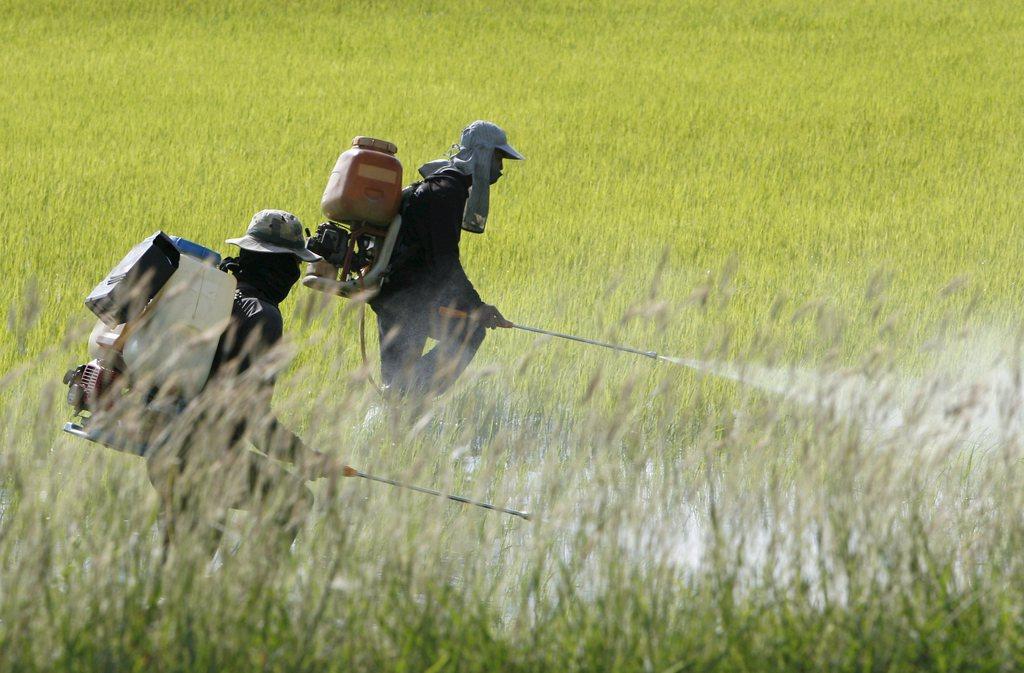Swiss urge farmers to use fewer pesticides

The vast majority of Swiss people want local farmers to use fewer pesticides on their fields, according to a survey published on Thursday.
The poll by the Zurich-based GfS research institute, on behalf of a coalition of environmental groups made up of Greenpeace, Pro Natura, BirdLife Switzerland and WWF Switzerland, found that 65% of people want the government to enforce a lower usage of pesticides in Switzerland.
Around half of those questioned said that in the future, the government should only hand out subsidies to farms that specialised in organic farming. Three out of four people said they were totally against any pesticides ending up in streams and in drinking water.
“We need an ambitious plan to reduce the amount of pesticides used in Switzerland, and more human and financial resources to implement such a plan,” declared Daniela Hoffmann, a farming expert at WWF Switzerland.
Stream survey
An extensive long-term study of Swiss streams, published in April by the Federal Office for the Environment, revealed high levels of pollution that pose a threat to the nation’s biodiversity. A steady cocktail of herbicides, fungicides and insecticides used in farming, in particular, affects invertebrates.
In the 1,800 water samples collected in 2015, researchers found 128 different plant protection products (PPPs): 61 herbicides, 45 fungicides and 22 insecticides. In 80% of the samples, at least one substance exceeded the limit specified in the Waters Protection Ordinance.
The Federal Office for Agriculture is developing a PPP action plan to improve water quality throughout Switzerland, which should be rubberstamped by the government later this year.
A new report published on Thursday by the Swiss Federal Institute of Aquatic Science and Technology (EawagExternal link) showed that micropollutants entering Swiss rivers and streams via effluents discharged from wastewater treatment plants were having adverse impacts on individual species, such as fish and macroinvertebrates. It also showed that wastewater discharge alters aquatic ecosystem, in particular algae and bacteria that colonise riverbeds.
The study found the anti-inflammatory agent diclofenac and the pesticides diazinon and diuron to be widely present in concentrations that could have an impact on the environment.

In compliance with the JTI standards
More: SWI swissinfo.ch certified by the Journalism Trust Initiative













You can find an overview of ongoing debates with our journalists here . Please join us!
If you want to start a conversation about a topic raised in this article or want to report factual errors, email us at english@swissinfo.ch.